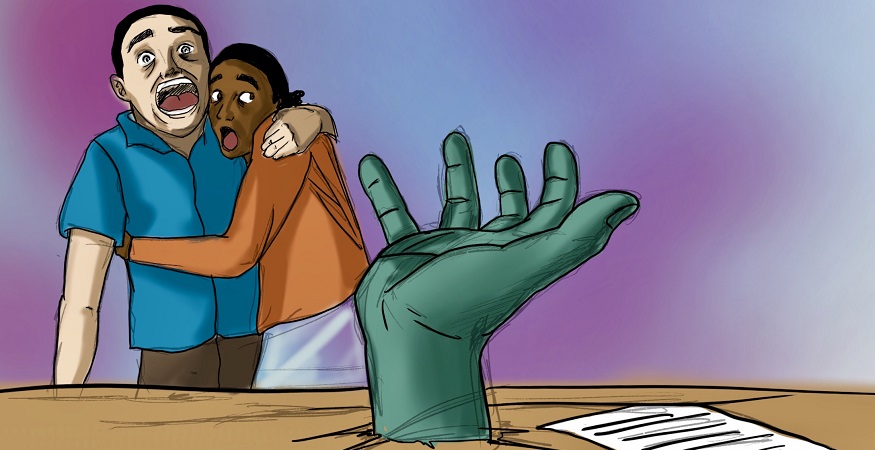Opinion: Are you ready for the group project apocalypse?
Imagine this scenario:
A thick purplish gray fog settles over the campus of UW Tacoma. The air becomes so unforgivingly chilly that, as you scurry to your next class, you can’t help but feel something’s gone awry. You then step into your class and see it: individual desks rearranged into clusters of four. On the whiteboard at the front of the class, your professor has written in big bloody red letters: Group Project.
You take your place among a group of strangers who appear just as anxious as yourself. On each of your desks lies a project outline detailing certain tasks which must be completed in order for you and your group to pass. Your professor has an unusual grin before announcing that your group project is worth 50 percent of your overall grade. At the announcement, you hear a faint moan — and it’s not coming from you. Your groupmates look around bewildered — it isn’t from them either. You glance down at the project instructions and nearly jump out of your seat. A face appears from the paper, gasping for air. The whole class screams as a crinkly arm erupts from another outline paper and grabs a student by the arm. The project is alive!
Like a zombie apocalypse, for some students, the mere thought of a group project fills them with anxiety and dread. The amount of work needed to succeed both socially and academically can feel like an attack on your daily student life.
If you wish to avoid being devoured by your group project, here are a few quick tips:
REMEMBER: PERSONALITY COUNTS
This may sound odd in an article about catastrophe, but an understanding of personalities is crucial to success because it helps settle conflicts that arise more efficiently. It also helps members divvy up the work in a project. For example, members who have a conscientious personality will be crucial in keeping the group on track and managing time, while members who are skilled in writing will be beneficial for editing group proposals or creating thought provoking slides on PowerPoints. In many post-apocalyptic books or TV series, the most effective teams have members with diverse sets of skills and personalities. A genius doctor or an expert hunter are just as important during a zombie apocalypse as an imaginative business major or extroverted communications major during a project.
BUILD TRUST AND COMMUNICATE
An expert hunter is a great asset during a zombie apocalypse, but not so great when they run off with the last of your medical supplies. Will you be able to count on your groupmates to do their duties? Can they count on you? If you want to survive, develop trust with your group through open and effective communication. This means listening to each other’s ideas, concerns and opinions. In zombie movies, group leaders may demand or yell at other members to get their point across. However, in real life, yelling or harshly criticizing other members will only create more stress and strain within the group. Even if one of your members appears to be slacking, always communicate respectfully. They might be slacking because they feel insecure or unsure of what they can do to help. Instead, ask them about their strengths and offer suggestions on ways they can help. However, if the behavior continues, make sure to consult your professor so your grade won’t suffer the consequence.
HAVE A BACK UP PLAN
Sometimes technology fails, or a group member calls in sick. If this happens, will your team be ready, or will you be devoured alive? It never hurts to be prepared. For group projects, make sure to have a copy of your presentation accessible on multiple sources, and r discuss with your group who will improv another member’s part in case of an emergency. If you want to really prepare, you can always purchase zombie survival kits from sellers on Amazon.






